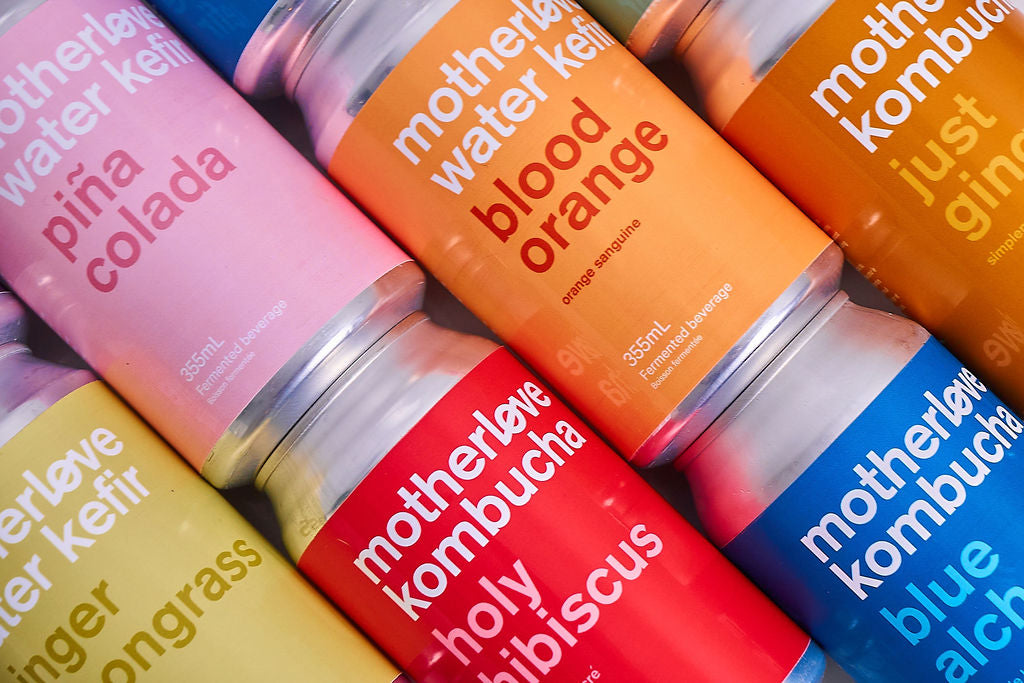
Glass Versus Aluminum
At Motherlove, our commitment to sustainability extends beyond our delicious kombucha and Kelowna water kefir. We care deeply about the environment, which is why we have made the switch from glass bottles to aluminum cans. This idea can be counter-intuitive, but let's explore the many benefits of aluminum cans as a more sustainable packaging option, highlighting their recyclability, convenience, and ability to preserve product quality.
- Recycle Better with Aluminum: Aluminum is a truly recyclable material. In fact, almost 75% of all aluminum ever produced is still in use today. Unlike other materials, aluminum pays for the cost of its own collection, making it a highly sustainable choice. By opting for aluminum cans, we are actively promoting recycling and contributing to a circular economy.
- Adventure More with Lightweight Packaging: Aluminum cans are lightweight and easy to transport, making them the ideal choice for those seeking outdoor adventures. Whether you're hiking, camping, or enjoying a picnic, you can now take your favorite beverages with you while minimizing your environmental impact. Remember to recycle responsibly when you return from your adventures, ensuring the cans get a second life.
- Longer Lasting Quality: One of the key advantages of aluminum cans is their ability to preserve the quality of our beverages. Cans effectively block out light and oxygen, preventing these elements from degrading the taste and freshness of our products. From the moment we bottle our kombucha and Kelowna water kefir to the time you open and savor them, the flavors will remain intact, ensuring a superior drinking experience.
How are cans better than glass? While glass has its merits, it falls short when it comes to single-use containers. Glass is heavy, breakable, and requires more energy, gas, and packaging materials for transportation. In comparison, aluminum cans offer a more sustainable choice due to their recyclability and lighter weight. We still encourage customers to bring their own growlers and bottles for refills or repurpose them creatively when glass is used for refillable containers.
Will aluminum affect product quality? No, quite the opposite! Aluminum cans actually enhance the quality of our beverages. Cans provide excellent protection against light and oxygen, which can negatively impact product freshness. While our bottles showcase the beautiful colors of our drinks, transparent packaging allows light to penetrate, potentially compromising the quality. To ensure product safety, we have chosen cans with BPA-free liners that create a barrier between the product and the aluminum.
At Motherlove, our transition from glass bottles to aluminum cans represents a significant step towards a greener future. Aluminum cans offer unparalleled recyclability, lightweight convenience for on-the-go adventures, and superior preservation of product quality. We embrace these positive changes as part of our ongoing commitment to sustainability and invite you to join us in making a positive impact on the environment. Together, let's raise a can to a more sustainable and delicious future!